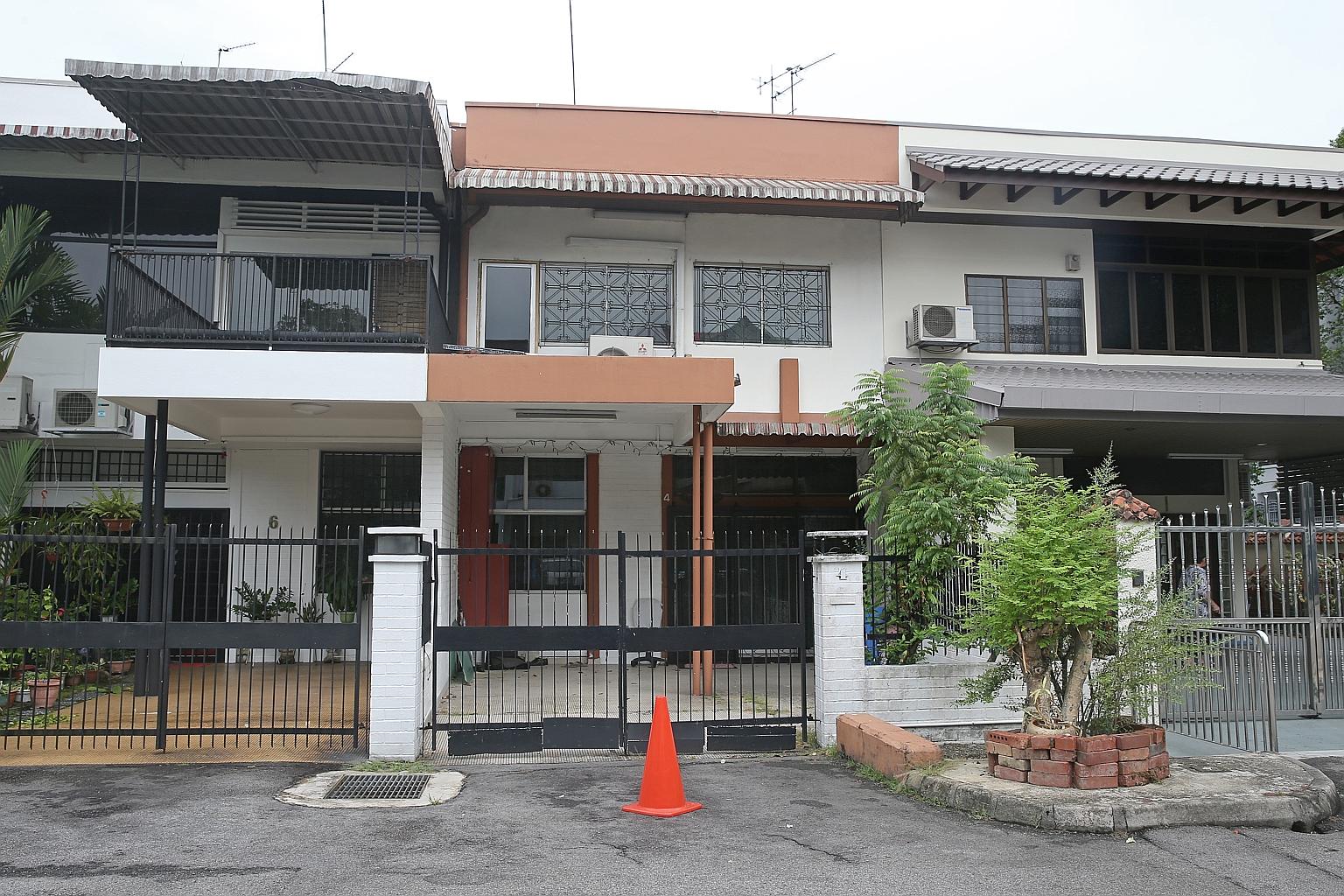Potential conflict of interest? Tell clients: Apex court
Lawyers need to get consent of all parties before acting for multiple clients, it says
Sign up now: Get ST's newsletters delivered to your inbox

An inheritance spat in which one brother stood to gain a half share of a $3 million family home (centre) in Merryn Terrace, to the exclusion of his other three siblings, led the Court of Appeal to flag its concerns about cases where lawyers may face potential conflicts of interest.
ST PHOTO: SEAH KWANG PENG
Follow topic:
Lawyers must get the informed consent of all parties before acting for multiple clients in a case where there is a potential conflict of interest, the Court of Appeal has said.
The apex court flagged this key concern when it reversed a High Court decision in an inheritance spat in which one brother stood to gain a half share of a $3 million family home, to the exclusion of his other three siblings.
Mutton stall owner Mohamed Aboobakar Kamaldin died in March 2000, and was survived by his wife, Madam Mahidon Nichair, his two sons Jahir and Dawood, and two daughters, Aysha and Noorjahan.
Four years later, the Syariah Court, which deals with Muslim laws, issued an inheritance certificate based on the application of lawyer Harjeet Singh, who was acting for Mr Dawood, the estate administrator.
The certificate awarded 29 per cent of the house to each of the two brothers, about 14 per cent each to the two sisters, and about 13 per cent to the mother's estate.
Mr Singh was then told by Mr Dawood that the three siblings had agreed to renounce their interests in favour of Mr Dawood and their mother. He did not question the instruction and, together with lawyer Gurmeet Kaur, prepared the two deeds executed by the three siblings and their mother.
Based on this, the Merryn Terrace property was transferred to Mr Dawood and his mother in March 2005. Mr Singh did not update the three siblings or the mother about the transfer, or give them copies of the new title deed.
In 2011, the three siblings and the mother lodged a caveat on the property and, two years later, filed a High Court suit to declare the 2005 property transfer void.
They failed. They then appealed to the apex court in April this year.
In judgment grounds issued last month, the Court of Appeal found that Mr Singh did not verify any of his instructions with the rest of the family.
He also failed to keep notes at the time - meaning there was no documentary proof of any advice he gave. He did not verify the instructions independently because he never saw any potential conflict of interest, and saw the case as a non-contentious probate matter.
Mr Bernard Sahagar, the lawyer for the three siblings and the mother, said all four siblings agreed to waive their interests under the 2004 certificate of inheritance, in favour of their mother solely.
They signed the probate papers believing they were meant to give effect to this agreement.
Mr Dawood, defended by lawyer Koh Swee Yen, disputed this, and said the three siblings renounced their shares in favour of his mother and him as joint tenants.
This was the consideration for him being appointed the sole administrator and living in the house to look after their mother, as the other siblings had all moved out.
The Court of Appeal found that while neither party could prove their versions of the agreement, the deal to transfer the siblings' shares to Mr Dawood was suspect as Mr Singh did not take sufficient steps to address various concerns raised when the three siblings and the mother signed the probate papers in 2004.
"We find that the three siblings signed the (former) deed under the mistaken impression that it related to Dawood's appointment as sole administrator of Father's estate," wrote Chief Justice Sundaresh Menon, on the court's behalf.
In making clear there was no blanket ban on lawyers acting for multiple clients in a deal where potential conflicts of interest may arise, the court issued guidelines on what lawyers should do in such cases. The court also consisted of Judge of Appeal Chao Hick Tin and Senior Judge Chan Sek Keong.
It ordered the land register to be rectified to reflect the portions held by each party under the certificate of inheritance issued by the Syariah Court in 2004. Madam Mahidon died on March 15, just before the hearing of the appeal.

